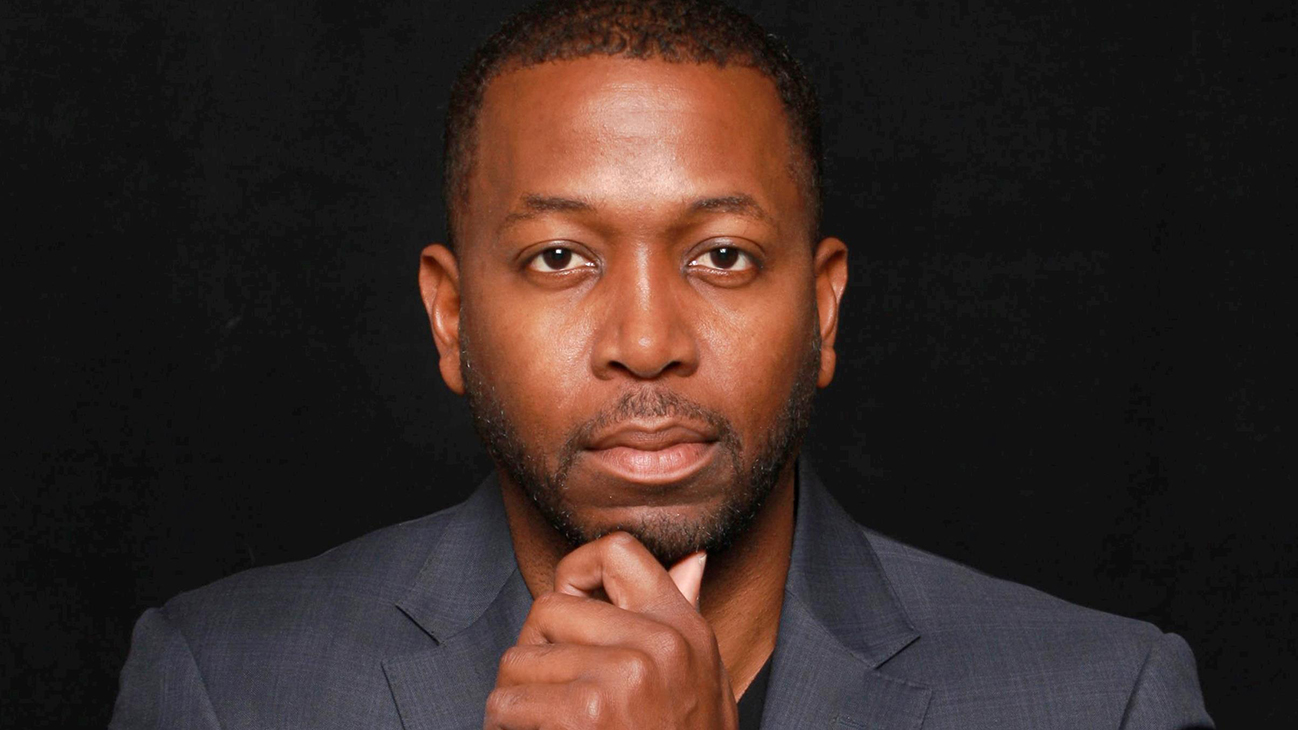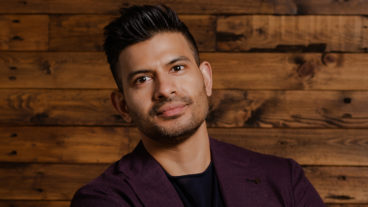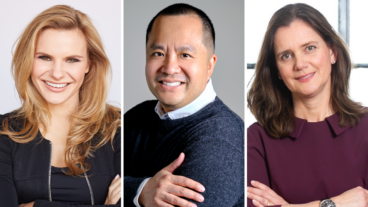The founder of TomorrowNow Learning Labs, Dwayne Matthews is an education and innovation strategist who explores the impact of disruptive innovation on the future of education and the future of work.
Dwayne was an international educator at one of the top five private schools in South America and served as the junior chairperson at the Toronto District School Board (TDSB). He was also the Chief Innovation Evangelist and President of NeuroEdX, a company using neurotechnology and AI to prepare students for the fourth industrial revolution.
Now, at TomorrowNow Learning Labs, Dwayne is creating future-focused learning lab models that emphasize metaverse learning experiences, personalized learning, and student success innovations, including AI education assistants, simulations, and cognitive enhancements.
Dwayne’s diverse career path over the last two decades has given him a unique perspective on future technologies and their impact on education and work. As a new speaker to our roster, we sat down with him to explore what a future-ready education system looks like, and the steps needed to ensure our current and future workforce is equipped for the challenges, changes, and opportunities ahead.
Building a Future-Ready Workforce
1. What skills do you think people need to find success in the workplace of tomorrow?
The speed of innovation is moving at an exponential rate. So, my number one skill suggestion would be flexibility and adaptability, with the runner up being perpendicular thinking. Being able to look at something from new angles and question old assumptions will be critical in the years to come.
Additionally, most schools today prepare students to be employees but, with the rise of AI co-pilots, all students with connected devices have the potential to be CEOs of small and large global companies. In this context, our future workforce should also be taught the characteristics of successful, ethical CEOs, such as:
- Strategic vision: Being able to set clear and inspiring goals and objectives within economic context.
- Leadership and high emotional intelligence: Being empathetic and having a sense of how to inspire and influence others.
- Decision making and problem-solving abilities: Developing the ability to ask pertinent questions that align strategic visions and articulated outcomes.
- Ethics: In an era when misinformation is growing exponentially, it will be very important to have a clear sense of ethics and one’s ethical positions.
2. What does a future-ready education system look like, and what’s the most important step we can take today to start building it?
The future of education is human-led, purpose-driven and technology-augmented. It should be highly personalized and responsive to the emerging digital transformation. It should also focus on “stranded brilliance” by providing a wider opportunity for access, not just socio-economically but also in terms of neurodiversity, geography, and delivery methods.
The most important first step — too often overlooked — is aligning collective principles with the creation of guiding policies. Many education leaders miss this step, which is detrimental to real change as it’s only after this can we create a strong strategy focused on helping students thrive in the emerging economic and environmental realities.
AI will transform our world and it should be considered in education at the strategic level vs. the reactionary one. Once we have clarity on strategy, we can determine the technologies, techniques, and frameworks that will help us achieve our desired outcomes. It is not about replacing a one-size-fits-all model with another one-size-fits-all model. It’s about creating numerous innovative models that can scale.
3. How can parents help to fill some of those gaps that may be present in their children’s schooling?
First, ask yourself, what are the intended outcomes? What do you want for your children? Once this becomes clear, you can outline strategies and the actions needed to get there. It’s probably not the initial answer most parents want, but it’s the best one I have.
We have a list of outcomes for our children — the character traits we would like to encourage and the academic progress, plus mental fitness and health, we would like them to have. We then formulated a strategy to help them achieve this. For example, we identified math as an important skill, so we have curated math apps and experiences to compliment their schooling as a daily routine.
Most importantly, instead of focusing on just getting top marks, we spend a disproportionate amount of time doing revision to highlight how far they’ve come and to identify gaps in their learning that we can go back and bridge. This teaches them that progress is more important than perfection, not only in math but in life. Celebrating and rewarding children for this and instilling habits of comfortably bridging gaps is important for lifelong learning vs. learning to pass a test.
AI in Education
4. You’ve called artificial intelligence a potent tool in education — how is it being used to enhance the learning experience (or how should we be using it to do so)? And what other technologies are you excited about?
I am really excited about the convergence of artificial intelligence, spatial computing, processing speeds, and storage with the neuroscience of learning. This creates the possibility for highly personalized learning models that will unlock “stranded brilliance”.
Most OECD countries have between a 30-35% post-educated population, with Canada having the highest at 50%. Post-education is a key driver in human prosperity, so this is a huge inefficiency. Just by raising those percentages to 65%, especially in emerging countries, we create massive possibilities. These technologies give us this opportunity as they create a wider range of educational models and learning opportunities.
Unfortunately, we aren’t seeing a lot of generative AI applications designed specifically for education yet, but one of the best tools I’ve seen so far is Scribo AI by Literatu. They have two AI products that, combined, help learners learn to write with personalized content and feedback. They also focus on empowering teachers by giving them time back so they can better collaborate with students on hyper personalized content.
I am also excited by the possibility of AI co-pilots, which would allow students to develop the art of asking questions and clarifying their thinking. I would like to see AI used to scale real-life, personalized, project-based learning and mental thinking frameworks, as well as to create more time in the day for mental fitness and physical movement.
In the past new innovations have paradoxically provided us with more time to be human. I believe AI, if strategically positioned, can generate massive amounts of cognitive surplus, which then creates an opportunity to increase our sense of humanity and intentionality.
The Future of Work
5. There are many people who are already in the workforce. What steps can they take to better prepare themselves for the demands of the future of work?
They should first realize that they must keep learning and looking for opportunities. Old opportunities will be consumed by innovation and new opportunities will arise. Those that are prepared will be able to move first. For example, prompt engineering didn’t exist before November 2022, but now these jobs boast salaries of $200-$300k, with no formal degree required. People that were adaptable and lifelong learners were able to move quickly. Today’s workers should focus on the intersection of knowledge and creative applications.
Secondly, it’s a mindset change. We’re not just employees anymore, we’re CEOs of “Me Inc.” and it’s crucial that we now make strategic partnerships and create value for employers, customers, and stakeholders. We’re currently seeing the rise of “hidden cyborgs”, people who leverage AI tools and human intelligence at work to create value quickly. Through accelerating their productivity, these people will stand out and create more opportunities for themselves.
I suggest following the 7-Hour Rule and take one hour a day to learn something new. Imagine how much we could learn in 24 months if we made this a habit. The bottom line is not to be a victim of what is coming at you. Instead, be an architect of your future through pro-active lifelong learning.
In an era where the skills necessary for the future of work are constantly evolving, Dwayne Matthews is working to ensure our workforce is future ready. He offers a roadmap for creating a robust, future-ready education system that cultivates a skilled and adaptable workforce in order to drive continued innovation, productivity, and economic prosperity.
Contact us to learn more about Dwayne and what he can bring to your next event.




